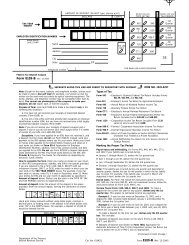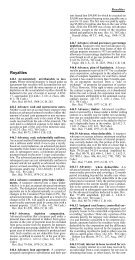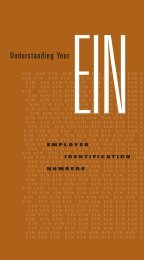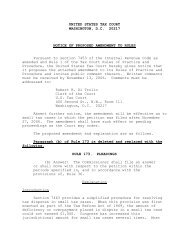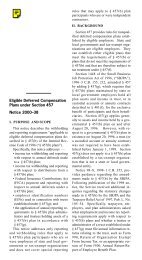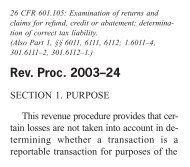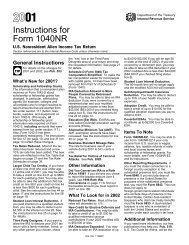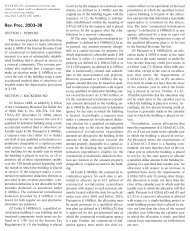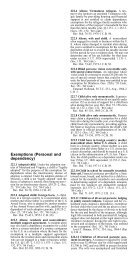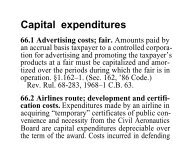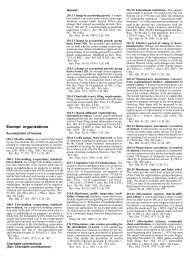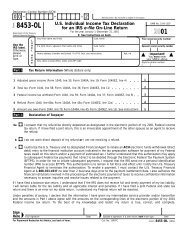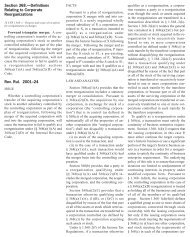Auto Dealerships - Audit Technique Guide - Uncle Fed's Tax*Board
Auto Dealerships - Audit Technique Guide - Uncle Fed's Tax*Board
Auto Dealerships - Audit Technique Guide - Uncle Fed's Tax*Board
You also want an ePaper? Increase the reach of your titles
YUMPU automatically turns print PDFs into web optimized ePapers that Google loves.
When a dealership is the principal on an extended service contract, the sales price of the<br />
service contract constitutes an advance payment and the dealership must include the full sales<br />
price in income when the contract is sold. The exception provided by Rev. Proc. 71-21 does<br />
not apply since the terms of the contracts are 2 years or more, and the services will not be<br />
performed by the end of the taxable year after the year of sale.<br />
The Tax Court specifically addressed this issue in the dealership context in two cases. In<br />
Hinshaw’s, Inc. v. Commissioner, T.C. Memo. 1994-327, the Tax Court ruled that all<br />
amounts collected for extended service contracts were includable in income in the year<br />
received.<br />
When dealers pay a premium to insure their liability under the service plan that they sell, the<br />
term of the insurance is the same as the term of the contracts of 2 to 6 years. Insurance<br />
premiums for policies covering more than 1 year must be amortized ratably over the term of<br />
the policy. Taxpayers using the accrual method of accounting must prorate and deduct<br />
ratably over the term of the policy prepaid insurance premiums. Higginbotham-Bailey-Logan<br />
Co. v. Commissioner, 8 B.T.A. 566 (1927).<br />
In Hinshaw’s, Inc. above, the Tax Court specifically addressed amortization of insurance<br />
purchased to cover the dealer’s risk under the extended service contract. The Court ruled<br />
that the dealership "* * *entered into contracts with its customers that required [it] to protect<br />
the customers from vehicle service costs for up to 7 years. [The dealership] then purchased<br />
insurance to protect itself from having to pay those costs; instead, the costs would be paid by<br />
an insurance company. Since [the dealership] will benefit from this coverage for more than 1<br />
tax year, petitioner must capitalize the cost of the insurance."<br />
In summary, the dealer obligor extended service contracts and insurance is purchased<br />
When a dealership acts as the obligor on an extended service contract and purchase insurance<br />
to cover its risk, it must include in income the full sales price of an extended service plan at<br />
the time of sale, and is allowed to deduct the insurance premium ratably over the term of the<br />
plan.<br />
Service Warranty Income Method (SWIM)<br />
In general, payments received by an accrual method taxpayer for services to be performed in<br />
the future must be included in gross income in the taxable year of receipt. The Service<br />
recognized that this treatment resulted in a significant and unique cash flow problem for<br />
dealerships that sell extended service contracts to customers in connection with the sale of<br />
motor vehicles and immediately pay a third-party to insure their risks under the contracts.<br />
To remedy this situation, the Service made an administrative decision to permit these<br />
dealerships to adopt or change to a special method of accounting for advance payments that<br />
would alleviate the cash flow problem but would generally conform economically to the tax<br />
treatment of advance payments under current law.<br />
11-3



